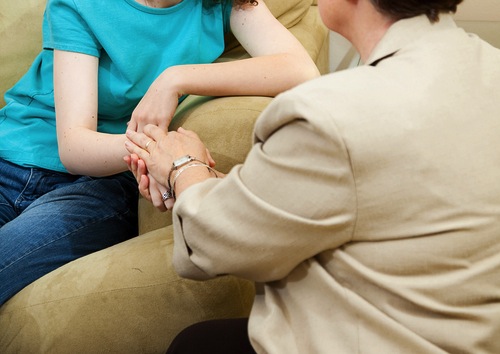Mental health problems among adults might be more common than you think. Experts say only about 40% of people who need help get it.
Rlynn Wickel is the Director at St. Mark’s Hospital Behavioral Health Services, and says if we know the signs, we can help.
What is “behavioral health?”
Behavioral health can be described as how an individual thinks and interacts in life’s circumstances. The interactions of a person when they face life situations, challenges and choices are the make-up of their behavioral health. It also includes the way they view themselves and the people in their lives. It’s how they evaluate their challenges and problems, and explore choices.
When should I consider seeking behavioral health services?
When problems arise within the intricate communications between the mind and body, people may develop conditions that affect how they think and behave. These conditions disrupt their day-to-day lives in ways that can be harmful to themselves or to others.
The following signs may indicate the need to seek professional treatment:
· Mood swings
· Irritability
· Feelings of hopelessness
· Remaining in bed
· Disturbances in sleep patterns
· Lethargy
· Apathy
· Withdrawal or isolation
· Overuse use of alcohol, medications or drugs
· Violence toward self/others
· Thoughts of suicide
· Racing thoughts
· Preoccupation
St. Mark’s Behavioral Health Services provides inpatient treatment for adults whose acute mental illnesses require immediate diagnosis, intervention and stabilization. The goal of the treatment program is to stabilize the patient through medication management, group therapy, family meetings and pastoral care. The combination and severity of the symptoms from an individual’s illness, compared against the normal context of their life, determines the services required. We work closely with patients and their family or caregivers to develop an individualized treatment plan.
What are some of the warning signs of an acute behavioral health issue?
· Major change in personality, such as anger, anxiety or hopelessness
· Disruptions in daily activities, such as inability to socialize, work, or perform daily chores.
· Hallucinations or paranoid delusions that disrupt functioning
· Inability to adjust or recover from loss or life’s changes such as loss of relationship or job
· Not eating, sleeping excessively or very little, has lost interest in previously enjoyed activities, or has become isolated
If you know someone who appears to have all the signs of serious mental illness, seek medical advice immediately by contacting your local mental health providers or visit the local emergency department. For emergency situations or in cases with threat of harmful behavior call 911.
Please contact St. Mark’s Hospital Behavioral Health Services at (801) 268-7431
or visit our website at www.stmarkshospital.com.















Add comment